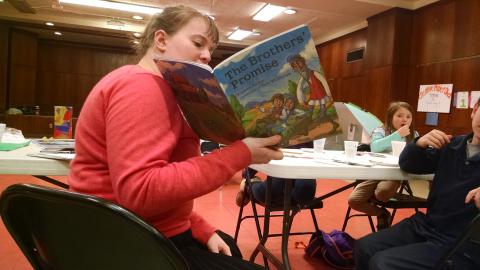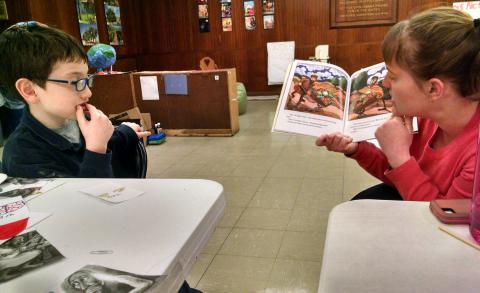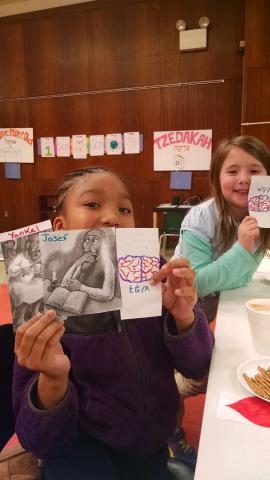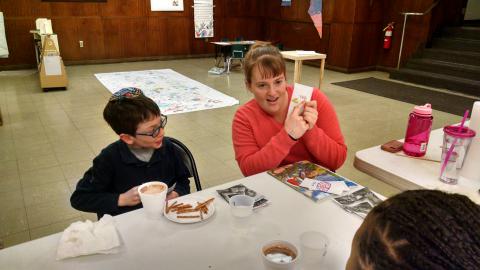This week began our pilot of PJ Library Goes to School. We’re excited to be among the pilot sites that are bringing the magic and wonderful resources of PJ Library to supplementary schools. All of the resources we’ll get to use are connected to this year as a shmitah year.
We’re also still in the midst of studying Shema as a text that connects Jewish people around the world and throughout time. Reading The Brothers’ Promise, by Francis Harbor together gave us an opportunity to do both.
The Brothers’ Promise tells the story of two siblings who each get an equal share of their father’s farm and promise to take care of each other. They don’t get enough rain one year and each worry about the other one having enough to eat. So they each decide to sneak some of their stored food into each other’s house. After a few days of doing this, they run into each other, both with barrels full of food to take to each other! And they have a good laugh and cry about it.

As we read through the story, our students watched out for times that the brothers were loving God with all their Lev (heart), Nefesh (soul), and Meod (power), as we are told to do in Shema. Each time a student heard an event in the story where a character used their lev, nefesh, or meod, they held up a card to tell us. We recorded who thought which one was used at which part of the story, and then we went back through to ask the students about why they thought each one had happened at different points in the narrative. Then, we zoomed out to see what general characteristics we could draw about times when people use their lev, nefesh, and meod.



Here are some of our students’ reflections on when the characters in the story love God with each of these parts of themselves:
- Nefesh (soul): when they think, when they problem solve, when they remember, when they do something we really enjoy (like the brothers studying Torah or playing music)
- Lev (heart): When they trust their hearts, when they listen to our hearts, when they worry about people they love, when they do something for people they love, welcoming people into their homes
- Meod (power): When they work hard, when they use their skills (like playing an instrument), when they are determined to accomplish a goal, when they are brave, when they stand up for what they believe in
An impressive list of ways to love God in our day-to-day lives! I look forward to seeing this process continue to unfold with our students as we continue studying the Shema together.
Looking forward to more great learning with PJ Goes to School in the coming weeks and months!
If your 6 month to 8 year old is not yet signed up to receive free Jewish books and CDs in the mail, SIGN UP TODAY! It’s a wonderful way to build your child’s Jewish library and your family’s quality time together, too. http://pjlibrary.org/parents-and-families/enrollment.aspx
